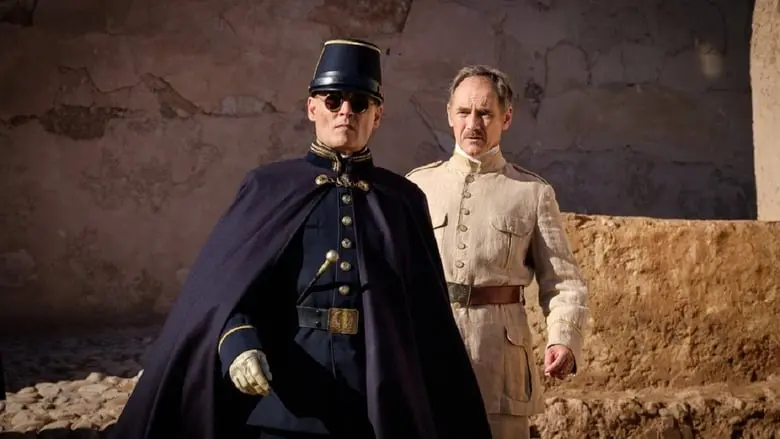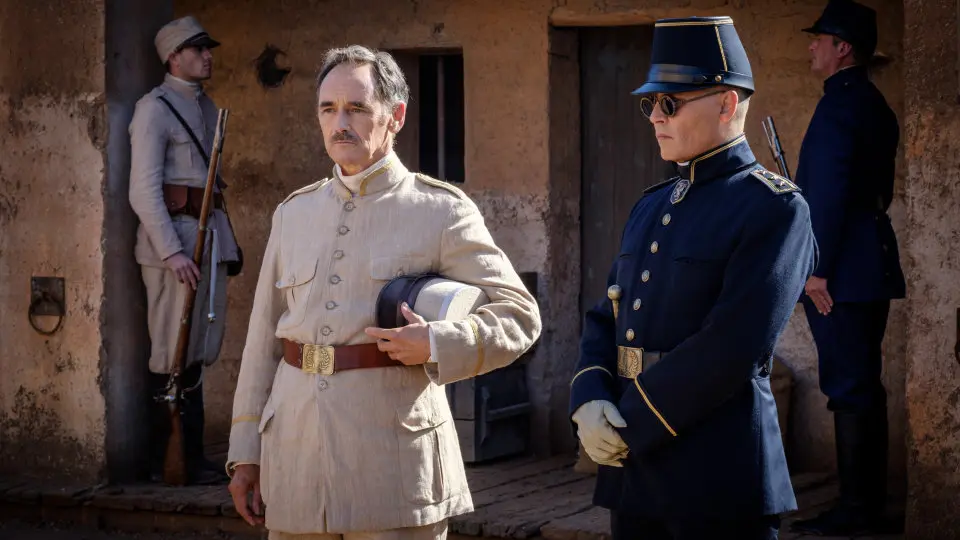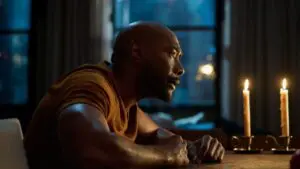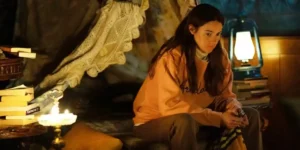Summary
It boasts an all-star cast and a timeless message, but Waiting for the Barbarians is too languorous and unspecific to build affecting human drama.
Given everything that’s going on with Johnny Depp lately, seeing him play the sadistic functionary of a totalitarian empire with such relish is a bit weird. That is his job, though, and he’s exceedingly good at it, as evidenced by his snarling turn as Colonel Joll here in Waiting for the Barbarians, an adaptation of J.M. Coetzee’s same-titled 1980 novel about the magistrate of a fictional desert town realizing that colonialism isn’t all it’s cracked up to be.
That desert town is nameless, as is the magistrate, and both exist on a parched frontier in some unspecified period that evokes fantasy as much as history. The story has been adapted for the screen by the Nobel laureate Coetzee himself, and is directed by acclaimed Colombian filmmaker Ciro Guerra, so there’s no quibbling with the creative pedigree. But the heavy-handed allegory proves difficult to film, and despite an all-star line-up results in a languorous pace and a thudding obviousness that both work to the detriment of a well-intentioned and still relevant story.
That story concerns the town’s relationship with an indigenous community of nomads referred to as barbarians by the locals and deeply mistrusted by Colonel Joll and the Empire on whose behalf he’s visiting. He’s there, he says, to figure out whether the barbarians are planning an insurrection, which he plans to uncover by means of torture, the innate pleasures of which he makes no secret of. The great Mark Rylance plays the nameless magistrate as a suitably aghast and out of his depth man who is seemingly okay with minor abuses but not the escalating and more wide-ranging evils that come about once Joll’s forces mount an expedition into the desert and return with a chain gang of so-called barbarians.

It takes ages for Robert Pattinson to show up in Waiting for the Barbarians. He plays Officer Mandel, another deliciously awful imperial stooge, but he’s worth waiting for. He and Depp both make a meal of their performances to better emphasise how much delight the Empire take in their oppression, but Guerra never quite manages to articulate how that mentality spreads virus-like to virtually the entire stark community, among whom only the magistrate, and even then only because of an emotional connection he forges with a nameless girl (Gana Bayarsaikhan) who has been blinded and scarred by torture, seems resistant to the regime.
Waiting for the Barbarians is proudly unsubtle; the anonymity of those dehumanized by the yoke, while their oppressors get full names and titles, isn’t even the bluntest aspect of this anti-imperial allegory that becomes, eventually, a difficult-to-stomach parade of atrocity against indigenous peoples. That, of course, is the point, and echoes real-life history all too well, but its heavy-handedness feels like the easiest way of making the point.




